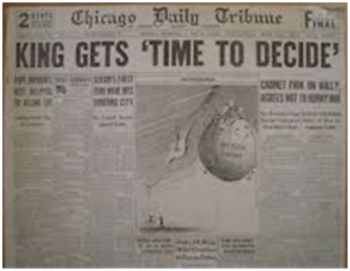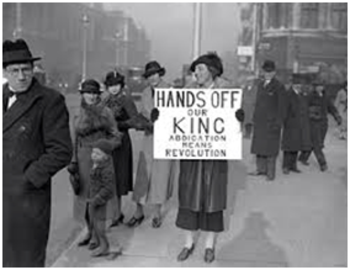
This past Monday, Monica Lewinsky took center stage at the Forbes Under 30 Summit to speak to Millennials who were at most 14 years old when she made global headlines. She told them that she was the first to have her reputation ruined on the Internet; announced her intention to lead an effort "to end cyberbullying and today's toxic culture of Internet shaming;" and implied that her treatment was comparable to that of Tyler Clementi.
I was shocked--shocked--that she considered the Internet the major contributor to her ruined reputation; shocked that she considered her situation similar to Clementi's; and shocked at her timing, given that Hillary Clinton is the democratic front-runner for the next presidential race. I was stunned. And I lost my ability to communicate anything beyond the fact that "I was shocked."
First, does the 'Internet-as-reputation-shredder' maxim really apply here? At the end of 1997, global Internet penetration was only 1.7 percent. Yet Lewinsky says that when her affair became public in January 1998, "Overnight, I went from being a completely private figure to a publicly humiliated one," bested by the brand new newsletter The Drudge Report. Frankly, I would argue that given the circumstances - a sexual harassment lawsuit, a presidential affair, taped personal confessions, a U.S. government investigation and a U.S. Senate impeachment trial against the president of the United States--her private life would have ended, Internet or not.
Similar examples exist that prove the Internet was likely not the source of her ruin. Remember the 1986 disclosure of the Prince Charles and Camilla affair, complete with phone transcripts and intimate details? Or the 1936 abdication of Prince Charles' uncle, King Edward VIII, to marry the divorcee Wallis Simpson? Both pre-Internet scandals made global news, proving that power, sex, government and consenting adults are a story that content providers want to print and the world wants to read--Internet or not.
Second, is Lewinsky's situation really comparable to Clementi's? It certainly sounds like she's making the case that the two are inextricably linked when she notes:
"We are all vulnerable to humiliation, private and public figures alike" and "the consequences can be devastating. And anyone can be next. One day in 2010, an 18-year-old Rutgers freshman called Tyler Clementi, was next. After his roommate secretly videotape streamed him via webcam kissing another man, Tyler was derided and ridiculed online. A few days later, submerged in the shame and public humiliation, he jumped from the George Washington Bridge to his death."
I don't want to depreciate the deep pain Lewinsky and her parents experienced, but I don't believe their situations are analogous. And to try to link them, as she has, denigrates those living simple lives who are tricked into public disclosures directly online. To compare Clementi's situation to one that involves duplicity and government investigations, regardless of how wronged Lewinsky thinks it is, somehow makes a mockery out of real-life tragedies such as those experienced by Amanda Todd, Rebecca Sedwick and the unsuspecting teens in Hanna Rosin's current expose "Why Kids Sext" in The Atlantic.
Lewinsky belittled the naiveté and innocence that comes with being a cyberbullying victim. What Clementi did with another person in the privacy of his college dorm room has no impact on the federal government, the American people or our nation's credibility. In fact, what Clementi did with another person in the privacy of his college dorm room did not need to be shared with anyone, anywhere, without Clementi's consent because he did not sign up to represent the American populace.
Simply put, cyberbullying and a political scandal are two different animals. Yes, political scandal is wrong but Americans believe, by merit of the trust of public office, they have a right to know and judge their elected officials. It is unfortunate when others get caught in the crossfire, but we must not mistake that for cyberbullying, which is personal, targeted and rarely provoked.
Third, the timing of the message also seems wrong. This is the United States of America, and we are all entitled to express our opinions--particularly when it doesn't hurt others. But somehow this speech, at this time, strikes a false cord. Lewinsky says after 10 years of silence, she's chosen to speak out now. Coincidentally, Hillary Clinton appears to be preparing for a presidential run, and according to the polls, her chances look pretty darn good. So after 10 years of silence, why speak out now? Why so publicly? What is Lewinsky's true motivation? As a marketer, I believe that timing is everything--and everyone thinks about timing when mounting a campaign. So why now?
Cyberbullying is real and incredibly destructive, and it goes on regardless of how many headlines shout out news of teen suicide or self-destruction. Consequences like these make us painfully aware that we, as responsible adults, have to take action and do something about this and not try to manipulate the situation to personal advantage. Those unaware of the Internet's pitfalls can be harmed all too easily.
Good technology use is like good health: We need to know what to do to maintain it. We all know that exercise and eating right maintains health, but we also know that if we exercise in the wrong way, we can get injured. And if we eat the wrong foods, it affects the way the body functions and ages. The same can be said for technology and the Internet.
Politics is public and all actions in the White House are subject to extreme scrutiny. Nixon and many others who crossed the lines of propriety have proven this to be the case. Our form of democracy has shown that politicians and those whom associate with live in a fishbowl, and I am not arguing that this is right. I am just stating that this is the way it appears to novices like myself. The moment Lewinsky stepped into the White House and began her internship, as a 22-year-old adult, she was working on behalf of the American people. I am sure she was briefed and instructed after having accepted such a prestigious assignment.
Social media is the fishbowl that the new generation of digital natives inhabits. They are young, often naïve, and not privy to briefings or instructions on how to behave online. They venture in, not as adults, but as young unsuspecting minors, often ignorant of the potential for victimization. Their lack of know-how can have consequences that leave lifelong scars. So practicing 'safe technology use' is serious--and should be recognized and positioned accordingly. It can, and should, not be compared to political scandal, which fortunately involves small numbers of people, when cyberbullying and online abuse have the potential to involve millions.
At first, I thought I would ignore Lewinsky's comments. But I care about this issue deeply and don't want to see it confused and diminished. As a company, we have adopted Tech It Off as a corporate responsibility initiative. We support organizations that support Clementi's cause, such as thinkb4youspeak.com, StopBullying.gov and others, under the umbrella of our Tech It Off initiative. Safe technology use is not just cyberbullying but involves a myriad of issues. But all involve the same basic strategy: The key to safety and success is educating youth at an early age and giving them a clear set of values. This technology value system should teach the difference between right and wrong online behavior.
Finally, we do agree with Lewinsky that there needs to be a campaign, but one that involves parents, teen and schools with early intervention. In the coming months, you will be hearing a great deal more about this. In the mean time, #TechItOff, and turn on to a better technology world. There is a difference between cyberbullying and political scandal; please do not confuse the two.


